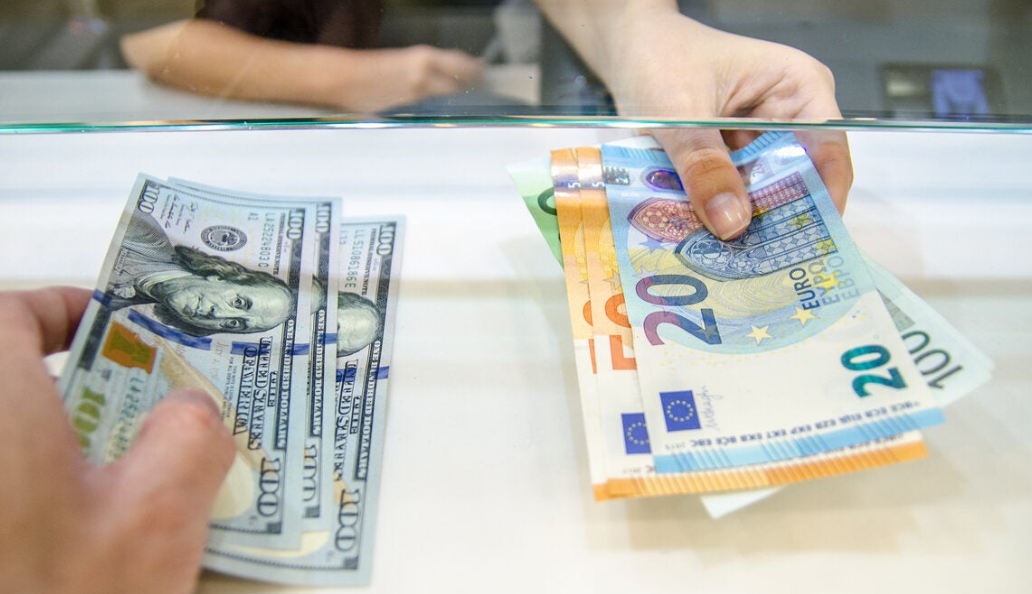Getting Started with Currency Trading: Your 6 Top Questions
Oct 11, 2023 By Triston Martin
You're not alone if you've ever wondered what Currency Trading is all about. The world of finance can be a confusing place, but fear not! We're here to break it down in plain, everyday language.
Currency Trading, also known as forex trading, is the buying and selling of currencies on the foreign exchange market. It's a global marketplace where currencies are traded 24/5. To help you get started, here are answers to six common questions about Currency Trading.
6 FAQs About Currency Trading
Here are the six FAQs about Currency Trading. Give them a quick read to explore the basics of this trading!
What Exactly Is Currency Trading?
At its core, Currency Trading is like a giant bazaar where different currencies are exchanged. Imagine you're traveling to a foreign country and must exchange your home currency for the local one. Currency Trading works on a similar principle, but it's done on a much larger scale.
You'll find pairs of currencies in this market, like the EUR/USD (Euro/US Dollar) or GBP/JPY (British Pound/Japanese Yen). These pairs represent the relative value of one currency against another. Traders speculate on whether a currency will strengthen or weaken compared to its counterpart and aim to profit from these price movements.
How Does Currency Trading Work?
Now that you know what Currency Trading is, let's dive deeper into how it works. At its core, it's about predicting whether one currency will rise or fall in value compared to another. Here's a simple breakdown:
Currency Pairs: As mentioned earlier, Currency Trading involves pairs. When you trade, you're essentially buying one currency while selling another. If you expect the first currency to strengthen, you buy it. If you expect it to weaken, you sell it.
Leverage: It often involves leverage, which allows you to control a larger position with less capital. While leverage can amplify profits, it also increases the risk of losses.
Market Participants: Currency Trading involves various participants, from individual retail traders like you to financial institutions and central banks. Each has its objectives and strategies.
Price Movements: Currencies respond to various factors, including economic data, geopolitical events, and market sentiment. Traders analyze these factors to make informed decisions.
Can Anyone Get Started with Currency Trading?
Anyone with an internet connection and some capital can start Currency Trading. Unlike other financial markets, the foreign exchange market is highly accessible to retail traders. Here's what you need to get started:
A Broker: You'll need to open an account with a reputable forex broker. They provide the platform and tools you need to execute trades.
Capital: You'll need some money to trade. The amount can vary widely, but starting with an amount you can afford to lose is important.

Education: Currency Trading is a skill; like any skill, it requires knowledge and practice. There are plenty of resources available online to help you learn the ropes.
A Trading Plan: Before you start, it's essential to have a clear trading plan. This plan should outline your goals, risk tolerance, and strategies.
What Are the Risks Involved in Currency Trading?
Currency Trading offers exciting opportunities, but it's not without risks. It's crucial to be aware of these risks before you start:
Market Volatility: The Forex market can be highly volatile, with prices subject to rapid and unpredictable movements. While this volatility can lead to significant profits, it can also result in substantial losses.
Leverage: As mentioned earlier, leverage can magnify both gains and losses. It's essential to use leverage cautiously and within your risk tolerance.
Lack of Regulation: Unlike stock markets, the Forex market is decentralized, with no central exchange. This lack of regulation can make resolving disputes or ensuring fair trading conditions more challenging.
Psychological Stress: Trading can be emotionally taxing, especially when faced with losses. It's vital to manage your emotions and stick to your trading plan.
How Can I Start Learning Currency Trading?
Learning Currency Trading is an ongoing process, but here are some steps to get you started:
Education: Start by educating yourself about the basics of Currency Trading. There are countless books, online courses, and tutorials available.
Demo Trading: Most brokers offer demo accounts that let you practice trading with virtual money. This is an excellent way to gain experience without risking real capital.
Technical and Fundamental Analysis: Learn how to analyze currency pairs using technical and fundamental analysis. These tools will help you make informed trading decisions.
Risk Management: Understand the importance of risk management. This includes setting stop-loss orders to limit potential losses and diversifying your trades.
Can Currency Trading Be Profitable?
Currency Trading can be profitable, but it's not a guaranteed path to riches. Here are a few factors to keep in mind:
Skill and Strategy: Successful currency trading requires a solid strategy and the ability to adapt to changing market conditions. Continuous learning and improvement are essential; it's not just about luck; it's about honing your skills over time.

Risk Management: Managing risk is crucial; it's the bedrock of successful Currency Trading. Never risk more than you can afford to lose. A fundamental rule is to set a predefined percentage of your trading capital as the significant risk for any single trade.
Market Knowledge: Economic events, central bank policies, geopolitical developments, and global news can all have a significant impact on the Forex market. Awareness of these factors and their potential effects on different currencies is vital.
Conclusion
In conclusion, Currency Trading can be an exciting and potentially profitable endeavor for those willing to put in the time and effort to learn and practice. However, it's essential to approach it with caution, manage risk wisely, and continuously improve your skills. With the right mindset and strategy, you can navigate the foreign exchange market and potentially achieve your financial goals.

Understanding Medical Cost Ratio (MCR) in Healthcare: A Simplified Guide
By Triston Martin / May 16, 2024
Dive into the world of Medical Cost Ratio (MCR). Learn what it is and how it works, and explore examples to grasp its significance in managing healthcare expenses.

How Much Do Fees for Financial Advisors Cost?
By Triston Martin / Feb 18, 2024
Financial counselors are experts in the disciplines of financial planning and investment management. They are well-versed in and knowledgeable of the stock market, bonds, mutual funds, and other investment vehicles. Fees for financial advice range from one expert to the next. This piece is dedicated to discussing the financial adviser fee structure.

Finding Out: Who Are Starbucks’ Main Competitors?
By Susan Kelly / Jan 15, 2024
The Seattle-based Starbucks Corporation opened its first store in 1971 and has since expanded to become the world's largest network of coffeehouses. Over 33,000 outlets (both owned and licenced) are already in operation for the brand, and they plan to increase that number to 55,000 by the year 2030. The United States is Starbucks' largest market, with 15,000 outlets, followed by China, where the business expects to open 6,000 locations.

Why knowing your Net Worth is Important?
By Susan Kelly / Nov 01, 2023
You can't improve what you don't measure. Track your net worth and make informed financial decisions.

A Closer Look at Arch RoamRight: Travel Insurance for Every Explorer
By Triston Martin / Jan 27, 2024
Are you considering Arch RoamRight? Give this article a thorough read to discover if it's worth the cost or not.

Smart Short-Term Financial Goals
By Susan Kelly / Dec 15, 2023
Increase your financial security and reach long-term goals faster with the help of short-term objectives. Learn how to set up achievable monetary aims to provide professional and personal satisfaction.

Exactly How Much Rent Can You Afford?
By Susan Kelly / Oct 01, 2023
The freedom to strike out on one's own is a major milestone in the development into adulthood. However, much more responsibility is included with stepping out or shifting, as is the issue with most significant life changes. Searching for the ideal flat, condominium, duplex, or rental property includes learning how to manage a single person's budget. How much money do you think is reasonable to put into a monthly rental?

How to Refinance Your Personal Loan: A Comprehensive Guide
By Triston Martin / May 10, 2024
Discover the steps to refinance your personal loan, potentially lowering your interest rates and reducing monthly payments. Understand when refinancing makes sense and what to consider before making a decision

Unearthing and Rectifying Credit Report Blunders
By Triston Martin / Nov 30, 2023
Dive into this article to learn how to identify and fix mistakes on your credit report. Discover the steps to improve your credit score and financial health.

How to Get a Mortgage for a Rental Property
By Triston Martin / Oct 26, 2023
Secure your financial future by learning about the ins and outs of getting a mortgage for a rental property. Don't be intimidated; find out how here!

Understanding Commercial Construction Loans and How to Secure One
By Susan Kelly / Jan 27, 2024
Explore the different types of commercial construction loans, understand the application process and learn key steps to secure construction financing for your business project.

The Comprehensive Guide to the Foreign Credit Insurance Association
By Triston Martin / May 19, 2024
Explore the FCIA's role in global trade through our comprehensive guide, covering services, application processes, and exporter support.